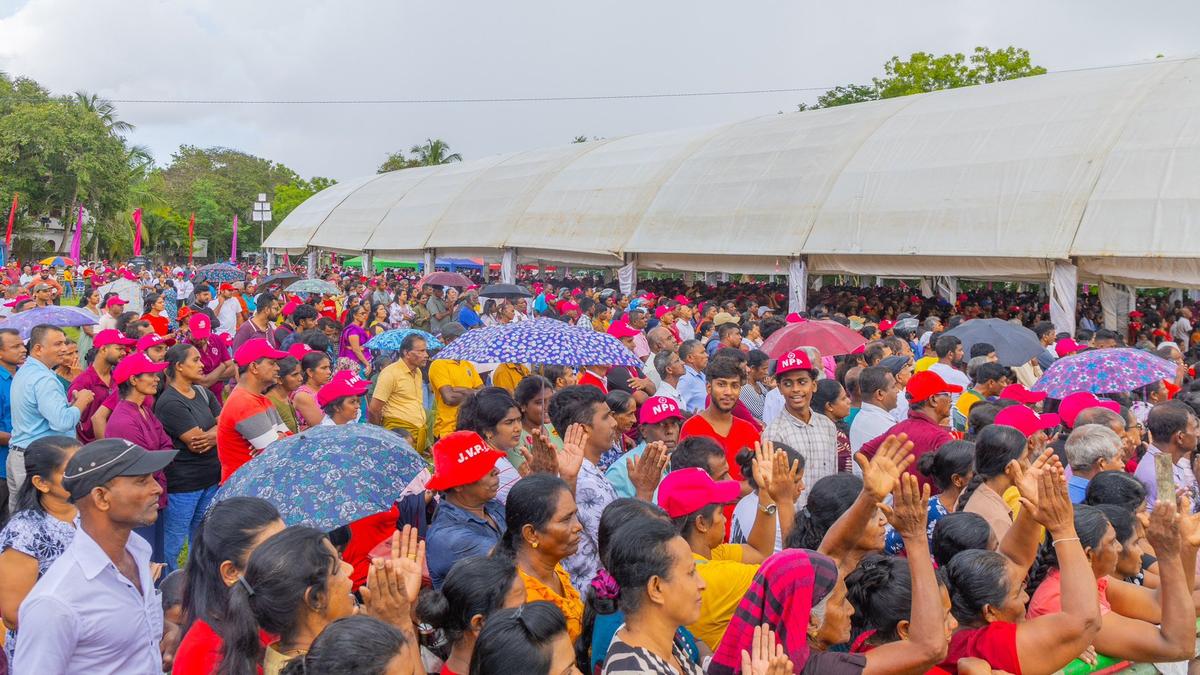
Sri Lanka’s multi-ethnic east reflects challenges facing Anura Dissanayake
The Hindu
Sri Lanka's President Anura Kumara Dissanayake faces voter sentiments in Ampara ahead of crucial parliamentary elections.
AsPresident Anura Kumara Dissanayake’s ruling alliance eyes a parliamentary majority in Sri Lanka’s November 14 general elections voters in Ampara, located on Sri Lanka’s east coast, reflect all that is going well for the new leader and the challenges that remain.
Also known as the Digamadulla electoral district, Ampara is an interesting case-study for voter sentiments across Sri Lanka’s ethnic groups. The island’s three main ethnic communities — Sinhalese, Tamils, and Muslims — cohabit this district which, along with Batticaloa and Trincomalee, makes up the Eastern Province. Ahead of the parliamentary polls that come barely two months after the presidential election, voters’ views range from hope to scepticism.
The rise of a leftist politician from the margins of Sri Lanka’s political mainstream to presidency made global headlines in September. While Mr. Dissanayake’s win was a remarkable milestone for his party, the Janatha Vimukthi Peramuna (JVP of People’s Liberation Front), and broader alliance, the National People’s Power (NPP), his government’s ability to influence policy and legislation, as the country’s ravaged economy pulls itself out of an unprecedented crisis, will be determined in the crucial general elections. The new government is asking voters to “cleanse the parliament”, so its members can have a majority in the 225-member House.
Mr. Dissanayake was not the most preferred candidate for President among voters in Ampara, where he won only 25.74 % of the mandate. His chief rival, former opposition leader Sajith Premadasa secured 47.33 %, consistent with his performance in other districts in the island’s north and east where Tamils and Muslims reside in large numbers.
However, locals note that this week’s election may reveal a shift towards the NPP among the ethnic minorities, especially the youth. This “more recent” switch, according to them, is rooted in anger and frustration with their elected representatives from regional parties.
While some voters are keen to elect someone well known to them, from their own networks, others are “tired” of the old guard of politicians leading prominent Muslim parties and are “looking for change”, according to K. Nihal Ahamed in Addalaichenai town. A prominent land rights campaigner in the eastern region, where residents are agitating to reclaim their land taken over by state agencies or business interests, he notes: “Our [local] leaders have not done anything about it – not while in government, not while in opposition. They have instead used regionalism or religious nationalism for their own political gains. Our people have had enough, they want the former MPs to ‘go home’.” He was playing on the popular demand, “Go home, Gota”, that dominated citizens’ protests during the 2022 meltdown.
Sri Lanka’s Muslims, especially those living in the Eastern Province, vividly remember voting amid great fear in 2019 when Gotabaya Rajapaksa won the presidency. The election came on the heels of the deadly Easter Sunday terror attacks, that shook the island. While it was executed by a network of Islamist radical suicide bombers, who the local Muslim community emphatically denounced, “locals had to deal with enormous surveillance and harassment at the time,” Mr. Nihal Ahamed recalls. Citing Mr. Dissanayake’s pledge to bring the real perpetrators to book, he says: “We feel a sense of relief that we are no more seen as a threat to national security.”











